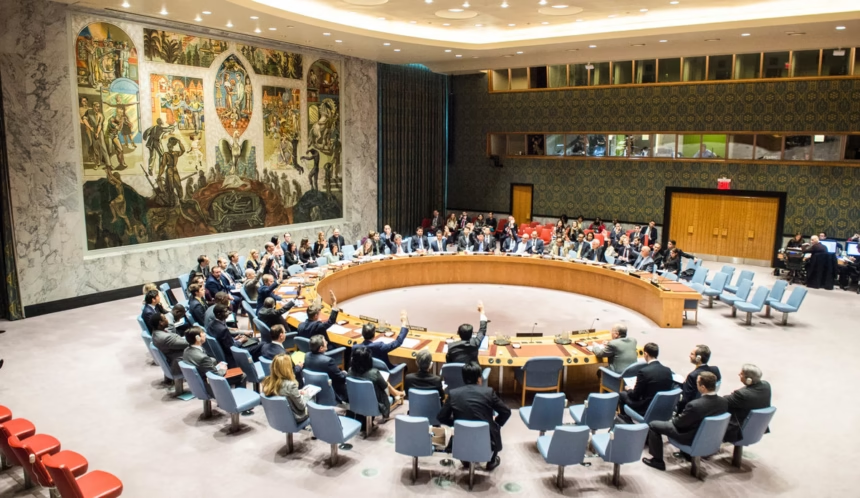UNITED NATIONS, NEW YORK — The United Nations Security Council unanimously adopted Resolution 2785 (2025) on Monday, July 14, extending the mandate of the United Nations Integrated Office in Haiti (BINUH) until January 31, 2026. The decision aims to reinforce international support for the stabilization of Haiti, a Caribbean nation grappling with deepening political, security, and humanitarian crises.
Through this resolution, the Council also expressed its intention to “promptly consider the recommendations made by the Secretary-General on February 24, 2025, regarding the various options for the UN’s potential role in supporting security and stability in Haiti.”
The Security Council reaffirmed its commitment to “a comprehensive, Haitian-led and Haitian-owned solution that addresses the root causes of the multidimensional crises currently affecting Haiti.”
Carlos Ruiz Massieu Appointed as New Head of BINUH
The BINUH will now be led by Carlos G. Ruiz Massieu of Mexico, who was recently appointed by UN Secretary-General António Guterres as his new Special Representative for Haiti and Head of BINUH. Ruiz Massieu succeeds María Isabel Salvador of Ecuador, who held the position since 2023.
The resolution was co-sponsored by the United States and Panama, both of which emphasized the need for stronger coordination among international actors. The United States described the BINUH as a “key component of Haiti’s democratic transition,” while Panama called the security situation in Haiti “unacceptable” but acknowledged the Office’s “essential role.”
The A3+ group of African countries currently serving on the Council—Algeria, Sierra Leone, Somalia, and Guyana—called for “a stronger resolution” and faster UN action in response to the deteriorating situation on the ground.
France urged the Security Council to adopt a more forceful approach, while China welcomed the unity of the international community around Haiti’s political process.
Haiti’s representative to the United Nations expressed support for the renewal of the BINUH’s mandate, highlighting its role in promoting governance, security, justice, and human rights. He reiterated the need for a comprehensive exit strategy, one that combines the efforts of the Multinational Security Support Mission (MSS) and the Caribbean Community (CARICOM), which remains committed to peace and sustainable development in Haiti.
The BINUH was established in 2019 by Security Council Resolution 2476 to assist Haitian state institutions in strengthening political stability, good governance, rule of law, and human rights. However, as the crisis deepens, the mission faces growing domestic criticism over its effectiveness.
Although the mandate has been extended for another six months, the reality on the ground remains bleak. Haiti’s capital, Port-au-Prince, is now largely controlled by heavily armed gangs, and public trust in institutions continues to erode.
During a Security Council briefing last week, Miroslav Jenča, UN Assistant Secretary-General for the Americas, warned of a dramatic decline in state authority and the rule of law in Haiti.
“There is a clear erosion of state authority,” he said, noting that gangs have further tightened their grip on the capital.
“Without increased action from the international community, a complete collapse of state presence in Port-au-Prince could become a very real scenario.”
The Council’s latest resolution comes as the Multinational Security Support Mission, approved in late 2023, prepares for an initial deployment led by Kenya. While expectations remain high for the impact of international support, observers say the coordination between BINUH, MSS, and regional actors will be critical to avoiding further deterioration.







